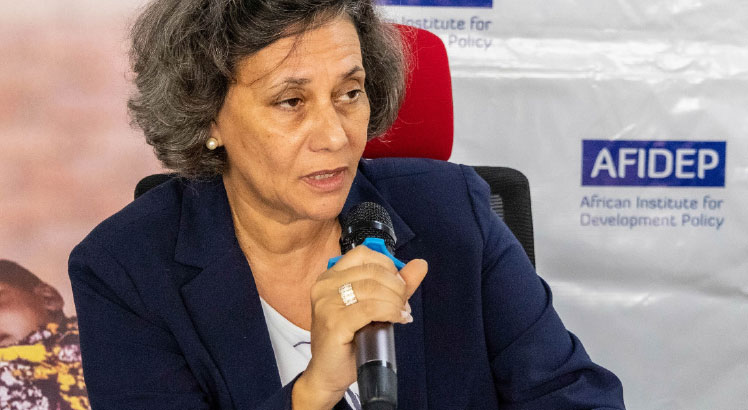UNFPA speaks on population and development
The Ministry of Finance and Economic Affairs estimates that Malawi’s population is currently at 20.9 million, with a projection of rising to 21.2 million in 2024. Average fertility rate calculated as births per woman is 3.9. However, as the United Nations Population Fund (UNDP) country representative NELIDA RODRIGUES puts it, rapid population affects development. Our Reporter PRECIOUS KUMBANI engages RODRIGUES on the possible solutions. Excerpts:

What are your concerns on rapid population growth in Malawi?
Rapid population growth being experienced in Malawi is exacerbating the poverty levels putting pressure on the limited resources and infrastructure the country has. The high population growth can strain healthcare systems making it difficult to provide essential services to all individuals.
How do we resolve this?
Addressing population dynamics through effective family planning and reproductive health programmes can help reduce poverty rates by ensuring that families can adequately provide for themselves. Family planning and reproductive health programmes are crucial in promoting maternal and child health, reducing infant mortality and preventing the spread of diseases.
How is gender equality related to population issues?
Advancing gender equality is a cross-cutting solution to many population concerns. In countries such as Malawi, which are experiencing rapid population growth, women empowerment can bring enormous benefits through human capital and inclusive economic growth. Empowering women economically, socially and politically will also enable them to make autonomous decisions regarding their reproductive choices when women have control of their reproductive choices. Through access to family planning and reproductive health services, they can space their pregnancies and achieve better maternal health. Realising Sexual Reproductive Health and Rights for all is a foundation for gender equality, dignity and opportunity, nevertheless, over 40 percent of women worldwide cannot exercise their rights to make decisions as to whether or not to have children. Empowering women and girls through education and access to modern contraception helps to support them in their aspirations and to chart their path to their own life. They need to be encouraged to nurture their desires for their lives, families and careers.
Is Malawi paying the required attention to population matters?
Yes, I see that there is a commitment from the Malawi government on population matters, especially on the importance of population on the development of the country. It is good to see that the Malawi Vision 2063, MIP-1, for example, realises the role of population dynamics in development. I would also like to commend the government for designating the National Population Week this year, and also for the launch of the National Population Policy. We really believe this should be the attention that we pay to population matters. It is good to see the importance of the multi-sectoral approach, coordinated approach, and materialising efforts including several ongoing reforms that need to be taken as a comprehensive package.
Why do population issues matter?
We can recall what happened in Cairo, Egypt in 1994 when nations set out to achieve a world where people live together, healthier lives and enjoyed more rights and choices than ever before. This vision has become a reality for many as the human population is at its highest number ever at this moment. This is happening due to the improvement in health care. However, we should not forget that while we are celebrating progress, we must also recognise that this promise remains out of reach for millions of others across the globe.
Are there gains in population dynamics?
Yes, we can achieve the prosperous base flow and the sustainable future envisaged by the International Conference on Population and Development (ICPD) and the 2030 agenda if we harness the power of every human being on the planet including women and girls and focus on gender empowerment.





